Empowering students with language-based learning differences
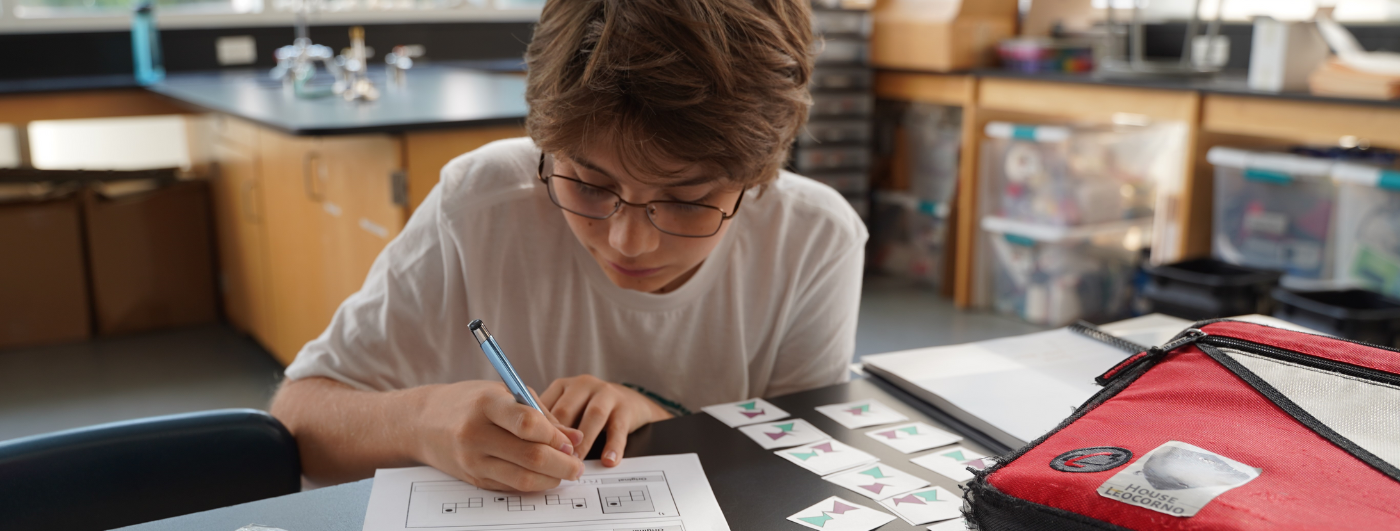
Siena Blog



The Siena School Blog
Discover, Learn, Celebrate, and Empower
Welcome to Siena's blog, your source for helpful, cutting-edge resources tailored to teachers, parents, and other advocates in the learning differences community. We are dedicated to providing a wealth of curated knowledge spanning various topics, ranging from dyslexia advocacy and awareness to classroom teaching strategies, heritage month profiles, and social and emotional health.
Discover innovative classroom strategies that inspire creativity and foster a love of learning.
Our commitment to social-emotional wellness ensures that we provide valuable insights into healthy student development and self-advocacy.
Discover resources, reading and podcast recommendations, volunteering opportunities, and more for parents in the LD community.
Our important heritage month posts highlight key people, offer reading and podcast recommendations, and more.
Mental Health Awareness Month 2025
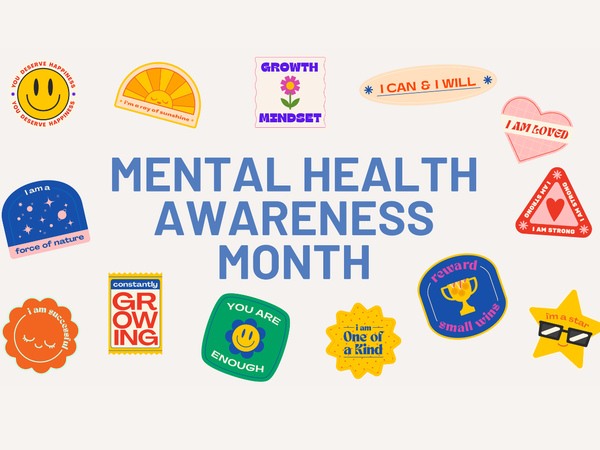
Avg. read time: 3 min.
Mental Health Awareness Month 2025
In honor of the Mental Health Awareness Month 2025 theme, “In Every Story, There’s Strength,” Siena is highlighting some important ways to raise awareness and share strategies for various mental health and neurodiverse needs.
There are many misconceptions and stigmas about mental health and receiving support, and our stories of self-care can help us to reduce stigma, increase empathy and awareness, and be proactive in terms of caring for our mental well-being.
How Parents Can Support Their Children’s Mental Health
There are a few ways we can regularly turn awareness into action, such as the following:
- Increasing understanding
- Reducing misconceptions
- Encouraging help-seeking
- Promoting empathy and compassion
- Challenging stigma
- Using or offering support networks
- Promoting positive representations
- Normalizing therapy and mental self-care
An easy way for parents to check in with their children’s own mental and emotional well-being is to have a conversation (even a short one). Here are some sentence starters to help facilitate that conversation:
- “I notice that you seem ___. Do you want to talk?”
- “What is an emotion that you are feeling right now?”
- “Tell me more about what you are experiencing….”
- ”I want to help. Would support or space right now help you most?”
Although your child might not want to share their story at that particular moment, it’s always important to encourage (and be available for) positive and healthy conversation surrounding feelings and emotions.
Sometimes, our children can be on opposite ends of the spectrum, from not talking at all to hyperbolizing emotions. Parents and other caregivers can be the “calm” and the anchor that your child needs when they feel strong emotions. Showing up consistently and being available for support will go a long way for your child as they continue to tell their stories on their own terms.
Another action we can take is showing empathy, curiosity, and understanding whenever possible, which in turn models good mental health behavior for children so they can contribute to a more accepting and positive environment for all.
Mental Health Resources for Parents
It can be a challenge for parents to navigate when to get support for their child, as well as to find a provider that fits. Below are some helpful resources to get started:
- Anxiety Institute
- Child Mind Institute
- Kingsbury Wellness & Learning Group
- National Council for Wellbeing (includes a free downloadable checklist)
- Psychology Today
Siena Resources
For additional information from The Siena School blog to help navigate students’ social–emotional health, see this post from last year about summer mental health awareness, as well as these about learning differences and confidence and online and offline boundaries for teens.
The Siena School, a national leader in dyslexia education, serves bright, college-bound students with language-based learning differences on DC Metro area campuses in Silver Spring, MD (grades 3-4 and 5-12) and Oakton, VA (grades 3-12).
Mental Health Awareness Month 2024
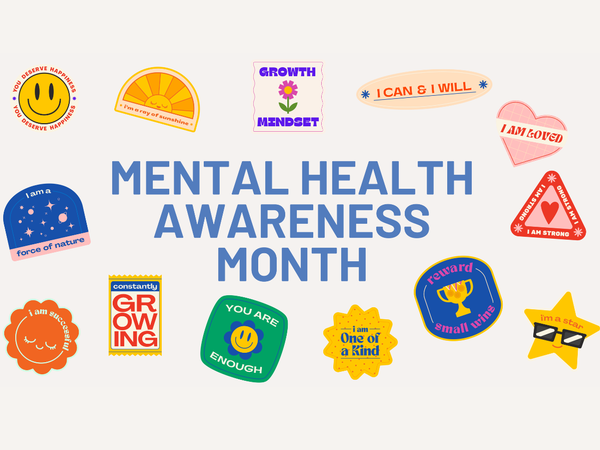
Avg. read time: 3 min.
With Mental Health Awareness Month 2024 winding down, it’s a good time to think about how adolescents can continue their good mindfulness and self-care practices over summer break.
Summer Mental Health Awareness
As we know, trying to find providers in today’s climate can be tough! The needs are high, and the number of providers who fit all of your needs are slim. Yet, as Siena’s School Counselor I’ve helped many parents and families find resources that have helped their child tremendously, and I hope to do the same here.
Summer is a great time to engage your child in therapy, social skills, or any other group wellness activity. There is more flexibility in their schedule, it’s a good time to brush up on skills they may need to be successful in the following year, and there are typically lots of groups offered during this time.
- The National Alliance on Mental Illness (NAMI) is encouraging us to Take the Moment for Mental Health Awareness Month 2024 in “normalizing the practice of taking moments to prioritize mental health care without guilt or shame.” See NAMI’s digital toolkit for ideas and specific resources for their Take the Moment campaign.
- Mental Health America and Substance Abuse and Mental Health Services Administration also have resources available.
It’s vital for students to understand their own mental health and the many resources they have access to. Below are some resources that you may be interested in to check in with your child, assess their needs, and see what you can do over the summer.
Individual Providers/Groups (Silver Spring)
- Bethesda Counseling Services (Carefirst BCBS)
- Brian Wheeler (Aetna)
- Brighter Days Child & Family Therapy (OON)
- Healing Harmony Wellness (BCBS, United Behavioral HC, Cigna)
- Marcus LaSota (Aetna)
- Nathan Luecking (Aetna)
- Orchard Mental Health (Aetna, BCBS, Carefirst)
- Roman Counseling (Cigna and BCBS)
- Stephanie Junghans (Carefirst)
Individual Providers/Groups (Northern Virginia)
- DMV Mental Health (Carefirst BCBS, Cigna/Evernorth)
- McLean Psychotherapy Practices (OON)
- A Rhaea Hope (Anthem, Blue Cross Blue Shield, Cigna, United Healthcare/Optum, Out-Of-Network Insurance, and Self-Pay)
Summer Programs and Groups in the DC Area
- Alvord Baker - Resilience Builder Program
- Brighter Days Child & Family Therapy
- CBT for Anxiety Group and Teen Mindfulness Group: offerings for different groups (grades 7-12)
- SPACE Program (Supportive Parenting for Anxious Childhood Emotions)
- SPACE Program and Parent Management Training Camp SELF: summer sessions for grades 5-8 (June 17-28) and grades 9-10 (August 5-9)
- Study Skills Camp: summer session for grades 6-9 (July 29-August 2)
- WISER: see their Find a Professional page to search for specialized services for students with learning and related needs in the DC Metro Area.
On top of this list, which prioritized providers that accept insurances, I also have lots of out-of-network providers who have been added to my referral lists. I also love the website Psychology Today for finding a provider that fits your needs. Finding support for your child or family can be a great next step in finding success.
Additional Resources
For additional information from The Siena School blog to help navigate students’ social–emotional health, see these posts from May 2023 about learning differences and confidence and online and offline boundaries for teens. See also this post about social media and mental health from May 2022.
The Siena School, a national leader in dyslexia education, serves bright, college-bound students with language-based learning differences on campuses in Silver Spring, MD (grades 3-12) and Oakton, VA (grades 3-11).
Boundaries: At Home, At School, Online
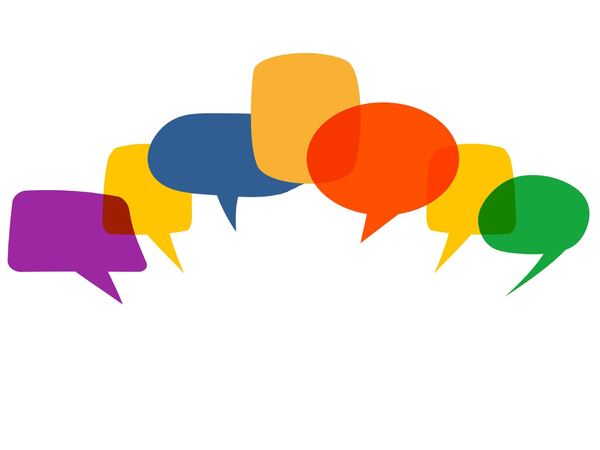
Avg. read time: 3 min.
Mental Health Awareness Month 2023
With Mental Health Awareness Month 2023 winding down, it’s a good time to look ahead to summer and think about how adolescents can continue their good mindfulness and self-care practices over break.
Mental Health and Boundaries
Understanding in-person and online boundaries is important all year, and having unstructured time over summer break might test such boundaries. In our work at Siena this year, we’ve noticed a pattern in the support students have been seeking: how to assert their boundaries firmly but respectfully in their daily interactions.
Part of social–emotional learning involves growing self-awareness, identifying values, and setting boundaries. Here are some ways for adolescents and teenagers to do this:
- Be clear: State your boundaries clearly and succinctly and lead with “I feel” statements, such as “I feel frustrated when you do ____” or “I feel hurt when you do ___.”
- Be firm but kind: When you state a boundary, do so respectfully and at a normal speaking volume. If you have to remind someone of a boundary, continue to be respectful.
- Focus on you: Boundaries are about how you would like to be treated and what you will do if you are not treated that way. Boundaries do not give you control over other people’s behaviors.
- Seek support from an adult: If you are clearly and respectfully stating your boundaries and your boundaries are still being violated, talk to a trusted adult for support.
Parents can help their students practice healthy boundary setting at home. If your child struggles with this, work with them to pick a boundary and practice enforcing it within your family. In addition, model healthy boundary setting for your children.
How Parents Can Help Teens with Online Boundaries
Students—particularly middle schoolers who might have their first cell phone—sometimes need help understanding responsible technology use. Students at this age may not be developmentally ready for the stress that comes from navigating daily digital communications.
Here are a few suggestions to guide your student with social interactions using technology:
- Monitor their communication: Let them know that you will periodically review not only the communication they send out but also what is sent to them.
- Set aside time to review texts: Due to the nature of texting and online communication, students are often forging ahead with minimal guidelines. When you talk through text conversations, explore how certain language can be misunderstood and cause hurt feelings. Parents could then brainstorm ways to communicate more successfully.
- Initiate parent-to-parent communication: If you see a text message that you think another parent should know about, please arrange a time to speak with them. Children are going to make mistakes, and families are encouraged to support each other as we all navigate the complicated world of digital communication.
- Encourage a variety of in-person, real-life relationships: Learning how to negotiate with others face-to-face and resolve differences are among the many interpersonal skills necessary in adult life. When students develop these face-to-face skills, they can adapt these to online skills more easily.
Here are additional suggestions that came from students and adults we’ve talked to this year:
- Encourage downtime from tech: Students often receive tons of messages and phone calls, including in the middle of the night. An easy way to give students a mental break and avoid such disturbances is putting the phone in a different room or powering it down.
- Turn off read receipts: This notifies the sender that the receiver has read the text message and can cause conflict if the receiver does not answer right away and feels slighted or ignored.
- Monitor cell phone usage: This is extremely important for helping our students navigate their online lives. If you see your child is sending multiple text messages in a row or calling someone multiple times, please discuss boundaries. Have them send one message, make one phone call, and then stop.
- Utilize tech apps: Whether it is on your child's phone, laptop, or video game console, using tech apps to control the amount of time they spend logged on is super helpful. Popular social media platforms like Instagram and TikTok also have useful tools for parental controls. You can “set it and forget it” and don't have to constantly monitor usage.
Additional Resources for Mental Health Boundaries
Parents interested in learning more about online boundaries for adolescents and teenagers can look up Delaney Ruston’s film Screenagers: Growing Up in the Digital Age, as well as Devorah Heitner’s Raising Digital Natives. Heitner is also slated to publish a new book in September 2023, Growing Up in Public.
For additional information from The Siena School blog to help navigate students’ social–emotional health, see Haley’s posts about learning differences and confidence from May 2023 and about social media and mental health from May 2022.
Siena’s mission-focused innovative dyslexia education is designed for students in grades 3-12 with language-based learning differences on campuses in Silver Spring, Maryland, and Oakton, Virginia.
Learning Differences and Student Confidence
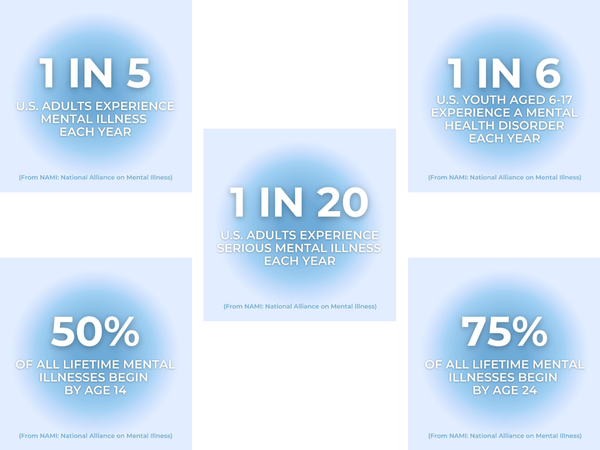
Avg. read time: 3 min.
Mental Health Awareness Month 2023
The theme for Mental Health Awareness Month 2023 is More Than Enough. As the National Alliance on Mental Illness (NAMI) reminds us,
It’s an opportunity for all of us to come together and remember the inherent value we each hold—no matter our diagnosis, appearance, socioeconomic status, background or ability.
Regardless of whether the school year is winding down or ramping up, families in the LD community can always benefit from up-to-date resources for understanding the social–emotional side of learning differences.
Recent Articles on Learning Differences and Self-Confidence
Here are some salient ideas that I’d like to highlight from these Child Mind Institute articles to help parents and students understand the importance of mental health in the LD community:
How To Help Kids Deal With Embarrassment
- Model how to deal with embarrassment—acknowledge it, remain calm, even identify the embarrassment or say it was also funny.
- Do not avoid embarrassing situations; rather, first work through them and then validate and praise children for their resilience.
- Key quote: “Helping your child gain perspective without minimizing their feelings will make it easier for them to move past negative experiences—and give them an important tool for building self-awareness in the future.”
How To Help Kids Talk About Learning Differences
- Help LD students understand their specific learning difference and discuss how it impacts them.
- Encourage students to practice advocating for what they need or what strategies help them inside and outside the classroom.
- Key quote: “If your child has habits or strategies that help them manage their learning difference, encourage them to let the teacher know.”
Social Challenges of Kids With Learning Differences
- Understand that a non-verbal learning difference could mean challenges with social cues, rules, and understanding jokes.
- Acknowledge that (1) children with ADHD might have trouble organizing an answer, show impulse control issues for sharing, or have trouble listening and (2) children with dyslexia might have trouble with complex language.
- Key quote: “If they’re getting the right support for their learning challenges, they will feel more confident.”
How To Help Kids With LD Build Confidence
- Practice reframing negative thoughts into positive ones.
- Instill a sense of belonging and encourage them to engage in outside activities/interests to help boost their confidence.
- Key quote: “Help your child develop a sense of belonging by helping them make meaningful contributions to family life, friends and community.”
Online Resources for Mental Health Awareness
In addition to the above pieces from Child Mind Institute, here are some other resources to help adolescents, teenagers, and parents get the support they need:
- Brilliant Mindfulness
- Meditation Resources and Guided Meditation Apps
- Mental Health America
- Mental Health Awareness Month (NAMI)
- Mindfulness + Meditation Resources (Stanford Health Library)
- Mindfulness Resources (Calm)
Additional Resources
See also Siena’s Resources webpage for ample links to material on ADHD, dyslexia, parenting, getting support for learning differences, and more. The Siena School blog has recent posts about social media and mental health and lessons in dyslexia advocacy, among many other relevant topics.
The Siena School, a national leader in dyslexia education, serves bright, college-bound students with language-based learning differences on campuses in Silver Spring, MD (grades 3-12) and Oakton, VA (grades 3-11).
Social Media and Mental Health
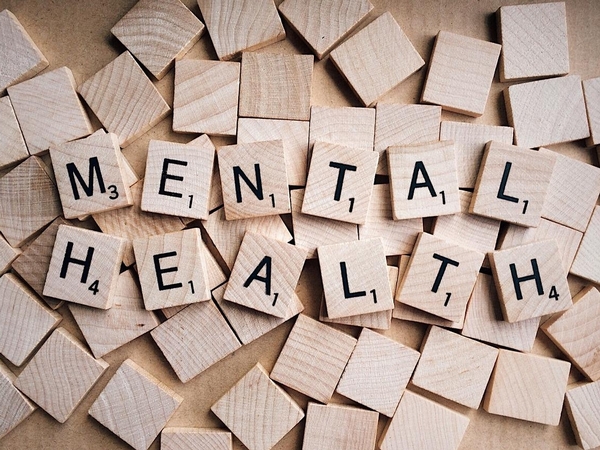
Mental Health Awareness Month is here, and let’s start with a fact: 46% of Americans will meet the criteria for a mental health condition.
The COVID pandemic has indeed brought on the topic of mental health, as it has been detrimental to some and posed particular mental health challenges. However, research shows that symptoms of mental health—mainly depression and anxiety—have shown increasing trends even before the pandemic.
Given its ubiquity, social media is closely tied to mental health issues, particularly in tweens and teens. Social media usage has both positive and negative effects for young people, so it’s important for parents to be aware of how multifaceted social media is. Let’s take a look at what may be causing these trends to continue rising, as well as some strategies for mental health and social media use that can be implemented to help build resilience.
Social Media and Mental Health
Derek Thompson’s recent article on why teens are so sad refers to four different factors that may have contributed to this increase in anxiety, depression, and other mental health issues:
Social Media
Although there are many benefits to having social media and being connected to lots of information, there are also serious detriments if it is not monitored or used properly. In a video on the addiction of social media and technology in general, writer and speaker Simon Sinek notes that the brain is permanently altered when there is too much stimulation from different modalities of technology (e.g., phones or computers). These permanent changes can cause slower brain function. Thompson’s article states that social media may not be a “rat poison” on tweens’ and teens’ mental health but rather a contributing factor that may lead to higher rates of depression and dependency.
Decrease in Sociality
Social media, as well as many months in isolation during the height of the pandemic, have limited the amount of socialization that people are doing. Moreover, even when some school and other social events opened back up last year, distancing and other restrictions required young people to learn new ways of socializing.
Social media has replaced certain activities, such as hanging out with friends, obtaining a driver’s license, or engaging in extracurricular activities, which can lead to increased feelings of loneliness and isolation.
Stressful World (and More News About It)
Unquestionably, our world over the last few years has been very stressful. Unfortunately, there is also more exposure to hearing of this news due to social media and the immediacy of the internet. Our tweens and teens are reading more about the things that go on in our world, and this causes more levels of stress, which in turn can cause increased amounts of anxiety, depression, and pessimism.
This is especially true right now, due to the recent tragedy in Texas at Robb Elementary School. News such as this mass shooting can be extremely hard to process, especially when we are constantly being updated. Creating space away from the news as well as utilizing resources such as the ones listed below are helpful in checking in with each other and our own mental wellness.
- Talking to Children about Violence: Tips for Parents and Teachers (National Association of School Psychologists)
- 10 Strategies for Talking to Children about School Shootings (Psychology Today)
- Helping Your Children Manage Distress in the Aftermath of a Shooting (American Psychological Society)
- Talking to Children About Tragedies (American Academy of Pediatrics)
Modern Parenting Strategies
Yes, it can be hard to manage our children and teens and protect them from harm. However, certain modern parenting strategies could be more of a hindrance, rather than a help. As parents, our reaction may be to accommodate a child dealing with an anxiety-provoking trigger (such as a dog) by helping them to avoid anxious situations. Although potentially helpful in the short term, avoiding anxious situations could enable the anxiety and also keeps the child from building resilience, which is so necessary for helping our children be successful as they grow up.
Instead, parents might encourage their children to work with a counselor or therapist to devise strategies to label their emotions, validate feelings, communicate and process what is in their control, as well as come up with coping mechanisms to handle stressors. Many of these conversations are helpful when implemented in the home as well! Communication with tweens and teens is key to understanding them, interacting with them, and helping them develop emotionally and persevere through adversity.
Strategies for Building Success and Social Media
With the trends of mental health symptoms increasing, more anxiety and depression amongst our children, and no end to the technology in our lives, how do we help protect our kids without enabling them? This seems like an impossible task!
This article from educational psychologist Michele Borba lists seven skills for building success versus building struggle in our children and teens. Ideally, we as parents are being less accommodating, creating opportunities for exposure to triggers or stressors, having them fix their problems on their own (with guidance) and building empathy and strategies to help them navigate. The seven skills are:
- Self-confidence
- Empathy
- Self-control
- Integrity
- Curiosity
- Perseverance
- Optimism
Ultimately, Borba writes, the idea is to help “boost mental toughness, resilience, social competence, self-awareness, and moral strength.”
It remains important as parents that we monitor social media usage as well as technology overall. Encouraging more time with friends and family, getting outside, participating in extracurricular activities, and limiting the amount of screen time is ideal. Social media contracts (such as this one) may be useful for setting up boundaries. Always communicate with your child about the potential harm of social media and balancing screen time with social time.
Taking care of ourselves and our children is of utmost importance during this time. Communication amongst the family, setting appropriate boundaries, and having coping strategies for all will be so helpful in creating healthy habits and building resilience in everyone.
For related resources, see Devorah Heitner Raising Digital Natives, as well as Delaney Ruston’s film Screenagers: Growing Up in the Digital Age. And, see Siena’s blog for more posts about social and emotional health, including some lessons in self-care and tips for socializing.
How Parents Can Maintain Support Networks

It’s been quite a year, hasn’t it?
Given how much has changed in terms of parenting, schooling, work–life balance, and more, parents should remember that they’re not alone. A few months ago, Siena counselor Holly Rothrock wrote an excellent blog post on experiential self-care lessons. While originally written for students, these lessons are relevant for parents in caring for their mental health and feeling connected.
Online Resources for Support and Community
Siena’s website has a number of resources for parents about learning differences, college applications, and more. Here’s a list of books we have in our parent resources library that you might also find helpful. Parents needing to feel connected as more schools are reopening could check some of these educational resources:
- Parents’ Place of Maryland includes access to links, podcasts, and more about schooling, mental health, and COVID.
- The Parent Encouragement Program (PEP) has some resources specific to COVID and telework, as well as parenting classes, a blog, and resource library.
- Hey Sigmund has plenty of good material about anxiety management and sleep habits for kids.
- Child Mind Institute, while not a support group per se, has a lot of great information to complement the above resources.
Parents could also check if their children’s schools have any online groups for sharing resources, advice, and support.
Resources for Parents of Children with Learning Differences
- Community Connections for Parents is a support group for parents of children with learning differences, ADHD, and anxiety.
- The Study Pro (Virginia) hosts a learning series for parents. The topics range from executive functioning and anxiety to writing coaching for various grade levels.
- ADDitude has ample information for ADHD and a discussion forum.
- On Facebook, parents can consider joining Dyslexia Support and/or Decoding Dyslexia MD. Dyslexia Support is a private group that offers practical advice, book recommendations, and emotional support. Decoding Dyslexia MD is a public group with posts on where to find a tutor, where to get your child assessed, questions about schools, and more.
- WISER has events, webinars, experts, and more for parents of children with learning differences.
- Understood has plenty of information for families, including the Understood Community.
See more of The Siena School blog’s resources for parents, including how new families can connect with the parent community.
Do you have any favorite or particularly helpful online resources to share? Comment below or email me. You can be anonymous if you wish.
Note: We do not endorse any of these websites or resources. Always check the privacy and appropriateness for your child.
